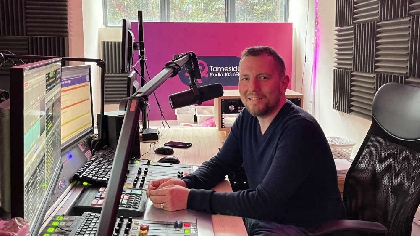
When was the last time you ventured down your local high street? Admittedly, the timing of a new report by the Federation of Small Businesses is unfortunate, given the ugly scenes which have played out in towns and cities dotted around the UK.
I don't want to spend this week's column giving the far right headbangers any more publicity, frankly. I will just say I can't believe some of the lows I've seen in the last seven days, including the desecration of graves, and looting of shops. I'm not entirely sure what message stealing a handful of crocs or some bath bombs sends out, but here we are.
Instead I'd like instead to have a quick chat about The Future of the High Street, which is the title of the paper that came out on Monday.
We all know how easy it is to click a couple of buttons online and buy stuff, and this was only accelerated by the pandemic, when many turned to online shopping for the first time. The trick is to create memorable experiences that can't be replicated online.
I was chatting to some of the lovely parishioners this week at St Thomas's Church in Hyde over a mint Viscount biscuit and strong cup of tea about the perils of self service tills, and the fact they always seem to go wrong whenever I use them. I can imagine shops must lose a lot of money on them too, due to dishonest scanning.
Personally, I'm a big fan of a nice chinwag with a real person scanning my shopping at the till. Perhaps we need a slow and fast lane for those who are in a desperate hurry?
Back to the high street, and with everything becoming automated, what can be done to tempt shoppers back? The Federation of Small Businesses (FSB) report suggested a number of measures, including more support for pop-up shops (I'd love to see a pop-up in Stalybridge selling purely sour beer!) and temporary use initiatives for new businesses. The paper also calls for the creation of mobile phone-based loyalty programmes and showcasing high streets in tourism campaigns.
Other suggestions include free bus fares on key routes for peak shopping days, free parking on Saturdays, and modern, well-maintained public toilets and creche facilities to encourage visitors to stay longer.
Tina Mckenzie is the FSB's policy and advocacy chairwoman, and commented: "High streets must be helped to evolve to keep pace with changes in consumer behaviour, as well as how small firms want to work."
The FSB's own research found that 57% of local businesses said a diverse variety of independent retail offerings is key to the long term future of local high streets. Around half of them said parking facilities near them were poorly managed.
I spent last Sunday in Skipton, the gateway town to the Yorkshire Dales, hosting a brand new music festival organised by the Town Council. I must admit I was a little nervous on arrival, as the place was deserted, but boy did it quickly get busy! From the start of the live music on stage at 11am, the stalls were well supported, the acts had a healthy audience, and the atmosphere was incredible. When so many other places have been churned up by hatred this week, it really felt like an outpouring of positivity. Just what was needed.
I think events like this are really key to bringing people into town centres, along with making parking as easy as possible, or providing better public transport to allow people to leave the car at home. I'd love to hear your Tameside and Glossop hidden gems, and give some independent businesses a mention on Tameside Radio. I have my favourites, but let me know yours by messaging me via our social media pages.
Talking of fab events, if you're at the Stalybridge Street Fest tomorrow evening by the canal in the sunshine (hopefully!), I'll see you there. More like this, please, and long live the high street heroes who work hard every single day to keep going. The pressures of rising prices, shoppers having less disposable income and internet shopping are all huge, not to mention the antiquated business rates system and soaring staff costs. I admire anyone who keeps going in the face of all these challenges.
A cafe manager in Norfolk recently told the BBC: "It's a tough gig, and you really have got to put 110% in to make a living". Thank you to all those who do.


 Alex B Cann Column - 26th March 2025
Alex B Cann Column - 26th March 2025

